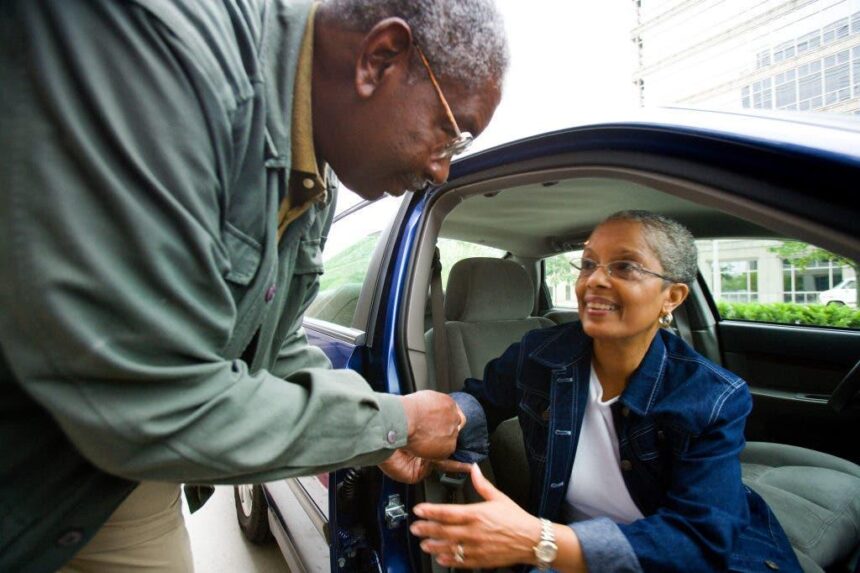Volunteer Drivers: Essential Support for Cancer Patients’ Treatment Journeys
A community-based cancer recovery initiative is urgently calling for volunteer drivers to assist patients with transportation to and from their medical appointments. Many individuals undergoing cancer treatment face significant mobility limitations and often lack dependable transit options. Volunteer drivers are indispensable in providing timely, consistent transportation, which is critical for maintaining treatment schedules and improving patient outcomes. Program leaders stress the increasing demand for volunteers and encourage compassionate community members to contribute their time and effort to this vital cause.
The Vital Role of Volunteer Drivers in Cancer Care Accessibility
Each week, volunteer drivers offer a lifeline to cancer patients navigating the complexities of treatment. These volunteers ensure patients can attend crucial appointments, including chemotherapy, radiation therapy, and counseling sessions, especially in areas where public transit is scarce or unreliable. Beyond transportation, drivers often provide emotional support and companionship, which can significantly uplift patients’ spirits during challenging times.
By volunteering, drivers help eliminate transportation barriers that might otherwise lead to missed treatments or delayed care. Their flexible schedules and familiarity with local routes enhance safety and comfort for passengers. Key advantages of participating in this program include:
- Adaptable scheduling to fit personal availability
- Specialized training to address the unique needs of cancer patients
- Opportunities to build meaningful community connections
- Direct contribution to improving patient recovery experiences
Overcoming Transportation Barriers Faced by Cancer Patients
Transportation challenges are a significant obstacle for many cancer patients, particularly those living in rural or suburban areas with limited public transit options. These difficulties can exacerbate physical exhaustion, emotional stress, and even lead to missed or delayed treatments, negatively impacting recovery. Patients often contend with fatigue, pain, and weakened immune systems, making reliable and compassionate transportation essential.
Volunteer drivers help fill critical gaps such as:
- Scarce or nonexistent public transportation in less urbanized regions
- High costs associated with taxis or ride-sharing services
- Limited availability of family or friends to provide rides
- Special considerations for mobility aids and medical equipment during travel
| Service Element | Patient Impact | Volunteer Driver Contribution |
|---|---|---|
| Dependability | Ensures patients attend appointments consistently | Provide punctual and reliable pick-up and drop-off |
| Safety | Reduces risk of infection and injury during transit | Maintain clean, sanitized, and comfortable vehicles |
| Emotional Support | Alleviates feelings of loneliness and anxiety | Offer friendly conversation and encouragement |
Community Benefits and Personal Fulfillment from Volunteering
Volunteering as a driver in a cancer recovery program extends beyond transportation—it fosters a deep sense of community and shared purpose. Each ride represents a vital connection between patients and their healthcare providers, directly influencing treatment adherence and recovery success. Volunteers often describe the experience as profoundly rewarding, witnessing firsthand the resilience and courage of those they assist.
By dedicating time and empathy, volunteers become integral members of a healing network, offering hope and relief to patients and their families. Commonly reported emotional benefits include:
- Increased appreciation for human strength and perseverance
- Gratitude expressed by patients and loved ones
- A strengthened sense of community involvement and purpose
| Volunteer Satisfaction Metric | Percentage Reporting Benefit |
|---|---|
| Emotional fulfillment | 86% |
| Meaningful social connections | 72% |
| Enhanced sense of purpose | 65% |
Engaging as a volunteer driver is a mutually enriching experience, where every mile driven contributes to a stronger, more supportive community for cancer patients.
Steps to Join and Support the Cancer Recovery Transportation Program
Becoming a volunteer driver offers a powerful way to support cancer patients on their path to healing. Reliable transportation reduces the stress and logistical hurdles that many patients face, ensuring they can attend all necessary treatments without interruption. This role is crucial in improving treatment adherence and overall health outcomes.
Ways to get involved include:
- Providing rides to hospitals, oncology clinics, and rehabilitation centers
- Selecting volunteer hours that accommodate your personal schedule
- Joining a compassionate community dedicated to patient care
- Participating in training sessions to ensure safe, comfortable rides
| Required Qualifications | Volunteer Benefits |
|---|---|
| Valid driver’s license | Personal fulfillment and satisfaction |
| Dependable vehicle | Positive community impact |
| Patience and empathy | Development of interpersonal skills |
Final Thoughts: Join the Movement to Support Cancer Patients
As the need for dependable transportation grows among cancer patients, the call for volunteer drivers becomes increasingly urgent. Community members who wish to make a meaningful difference are encouraged to step forward and offer their time behind the wheel. By volunteering, you help ensure that no patient faces the challenge of treatment alone, bridging the gap between care and recovery. For more details on how to participate, local program coordinators invite interested individuals to connect and become part of this life-changing effort.










